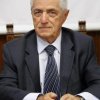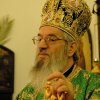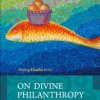He was the founder and director of the Serbian Unity Congress (founded in 1991) which became an international non-profit organization with hundreds of thousands of members giving invaluable aid to Serbs in the former Yugoslavia during the tumultuous times of its break up, war, and new post war beginning, as well as organizing our people to educate governments, politicians and journalists about that war, our culture, history and people.
He founded the Studenica Foundation (1993), with three other families in the US, which continues to give scholarships to Serbian university students in every field, and which has given thousands of such scholarships (about 300 for study in the US), in the hope that such young intellectuals would rebuild Serbia and the region and continue to contribute to its future prosperity.
After the war ended in the former Yugoslavia, Mr. Djordjevich also founded and was President and Chief Executive Officer of the Bank of Southeast Europe International, Inc. and rebuilt Razvojna Banka in Banja Luka, Bosnia-Herzegovina post war. With little or no international aid going to Serbs post war, the banks, giving small business loans to private Serbian businesses and farmers (to buy tractors, seeds, fertilizers etc.) were critical for Serbs to rebuild their war torn regions. I believe that without this critical assistance there would have been an even greater mass exodus of Serbs out of Bosnia and even the very existence of Republika Srpska would have been in peril.
Post war, after the fall of the then government, Mr. Djordjevich also initiated and organized the Sentandrea Sabor in Hungary, bringing together the new Serbian government, diaspora experts, the crown, and representatives of various Serbian parties to unite and plan the rebuilding of Serbia. At his helm, even a list of 1500 diaspora professors at prestigious universities was created for the Serbian government, as well as lists of other experts.
Mr. Djordjevich is the recipient of the Medal of Nemanja (II Degree); Medal of Yugoslav Flag (II Degree).
Who’s Who Worldwide Lifetime Achievement Award; Americanism Medal from the National Society Daughters of the American Colonists and served on the on the Statue of Liberty Ellis Island Centennial Commission.
He is the author of several published volumes of poetry and a two volume book “Decenija Iluzije” about the work of the diaspora during the war and mistakes made by the US, Serbia and Diaspora Serbs during that decade, so that we do not repeat history.
He has been a Member of the Serbian Orthodox Church St. John the Baptist (since 1956) in San Francisco, California.
Most importantly, Mr. Djordjevich has served as a role model and inspiration to “younger” generations of Serbs in the diaspora to become involved and help our former countrymen, as well as those in the diaspora, both to prosper and not forget our roots.
Michael Djordjevic passed away on May 8, 2023.





